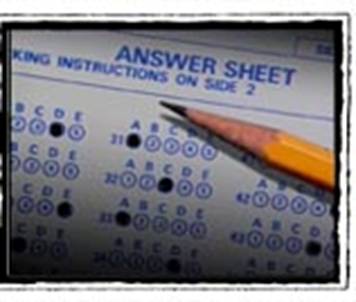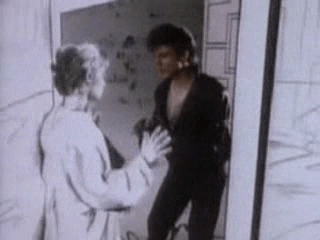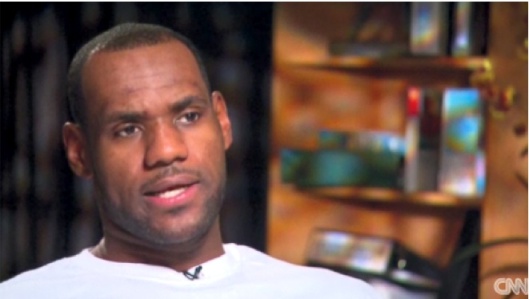Tags
"I've Got The Power", "Rapper's Delight", Arrested Development, Grandmaster Flash, KRS-One, Lyrics, Manhood, Musical Tastes, Notorious B.I.G., PE, Public Enemy, Rap, Run-D.M.C., Snap, Sugar Hill Gang, Tupac
At nearly forty-one, I ultimately don’t care what anyone thinks about my musical tastes. I haven’t cared for years. Heck, I make fun of some of the stuff I still listen to. Some of it’s deserved, but much of it’s a function of the music segregation that’s part of the cultural segregation that still exists in this country we call America.
Like most growing up in the ’70s and ’80s, I was introduced to rap in late-’79 by the Sugar Hill Gang “Rapper’s Delight,” rap lyrics with Chic’s “Good Times” — a disco hit the year before — as the background music. I got to see a rap venue once growing up, the following summer at Van Courtland Park in the Bronx. Back then, me and my Holmes Elementary School friends weren’t sure if rap was much more than a curiosity or fad, or would be here to last.
Who knows if the Hebrew-Israelite years or Humanities or just having parents who’d barely made it out of the ’60s music-wise had anything to do with it, but the years between ’81 and ’84 were lost ones as far as rap was concerned. I heard more classical than probably any other genre in middle school, thanks mostly to our wacko music teacher Mrs. Mallory. We didn’t have cable, and me listening to the radio at 616 wasn’t permitted unless it was religious programming. I caught pieces of music from videos on ABC on Saturdays sometimes, from my nearly daily runs to C-Town, and from my classmates and their conversations.
That was until I rebelled in the summer of ’84. Grandmaster Flash. Kurtis Blow. The whole Roxanne thing. That’s what I got to hear when I began to turn the radio dial to WBLS-FM and a couple of other stations in ’84 and ’85. Of course, Run-D.M.C. Doug E. Fresh, Kool Moe Dee, and early LL Cool J would all hit the scene in the two years that followed.
But unlike my other Black male classmates, I didn’t take a liking to most rap. And that made me wack. I was preoccupied with escaping 616, trying to find my true self, with succeeding and surviving Humanities and high school. Chasing skirts, trying to one-up and put down those around me, going to Mount Vernon Knight basketball games and hanging out on weekends? That wasn’t me, and the rap of those times didn’t have much of me in them. To think that a quarter-century ago, rap lyrics that referred to neighborhoods in the Bronx, Harlem or Brooklyn hardly ever commented on bling or blight — especially the blight — shows how far the genre had to grow in ’85.

PE, October 30, 2010. Source: http://www.melophobe.com
It took college and Public Enemy for me to fully appreciate rap and its power and popularity. It took PE and KRS-One and Arrested Development for rap to do something that all of the other music I listened to had done. They made me think. They touched my mind and my heart. The anger and rage of their rap other ’90s rap finally matched the early music of U2 and the romance of love balled R&B. I finally felt like the game had gotten serious, enough for me to pay attention.
Then the whole fake East Coast-West Coast crap of Tupac and B.I.G. came along to ruin rap for me again. What were they doing and thinking? Really, would Pearl Jam and Creed threaten to kill each other in order to promote their music? It was “a shame and a pitiful,” as my father would say. It took me a few years after Tupac’s death to come back to him, his contradictions and his poetry as rap.
Hate to say it, but only Eminem has picked up where Tupac left off since ’97 — and he’s just as contradictory. I’ve never really liked Jay-Z. Not because I don’t see the talent or can’t bump to the music.
But because until recently, his words never made me think, never gave me anything to feel at all. His music reminded me of why I didn’t like rap in the mid-’80s. It was cotton candy rap, the kind my superficially cool Black male classmates liked. Nas may be the most talented one of them all, but seems almost tormented between being a slut (this is a gender-neutral term for me) and being a soothsayer.
I find the music that is hip-hop and rap today wanting, with the same tired themes, with about as much originality as a ’60s radical patting themselves on their backs for striking a blow against “the man.” After three decades, the genre’s come full circle. I want to listen and learn. But I don’t think that the folks who step to the mike now are worth listening to or learning from.














